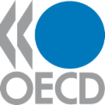The Organization for Economic Co-operation and Development (OECD) has published an overview paper, 'Beyond the Millennium Development Goals (MDGs): Towards an OECD contribution to the post-2015 agenda.' The paper proposes 11 elements for a global, holistic and measurable post-2015 development framework, using a two-level approach: a global level with high-profile goals and targets; and a national level with country-specific goals, targets and indicators.
 25 April 2013: The Organisation for Economic Co-operation and Development (OECD) has published an overview paper, titled ‘Beyond the Millennium Development Goals: Towards an OECD contribution to the post-2015 agenda.’ The paper proposes 11 elements for a global, holistic and measurable post-2015 development framework, using a two-level approach: a global level with high-profile goals and targets; and a national level with country-specific goals, targets and indicators.
25 April 2013: The Organisation for Economic Co-operation and Development (OECD) has published an overview paper, titled ‘Beyond the Millennium Development Goals: Towards an OECD contribution to the post-2015 agenda.’ The paper proposes 11 elements for a global, holistic and measurable post-2015 development framework, using a two-level approach: a global level with high-profile goals and targets; and a national level with country-specific goals, targets and indicators.
The paper describes the new global context in which the post-2015 framework will operate, noting a “new geography of growth” in which developing and emerging economies have begun outperforming OECD countries in growth and share of world gross domestic product (GDP). It also highlights: a “new geography of poverty;” growing inequality; increased diversification of development actors; and greater interdependence coupled with a need to address climate change and unsustainable resource use. The paper further highlights growing recognition of a need for broader measures of development, country and context specific approaches and results-oriented approaches.
OECD proposes four “outcome” elements, including principles underlying future goals, and seven “tool” elements for achieving existing goals and developing future goals. The outcome elements are: measuring what you treasure and keeping poverty at the heart of development; developing a universal measure of educational success; achieving gender equality and women’s empowerment; and integrating sustainability into development. On poverty, OECD suggests measuring well-being and progress. On gender equality and women’s empowerment, OECD recommends a stand-alone goal as well as gender-specific targets and indicators in all other development goals. On sustainable development, OECD highlights green growth approaches and indicators.
OECD proposes seven “development enabler” tools: strengthening national statistical systems; building effective institutions and accountability mechanisms; developing and promoting peace and state-building goals; ensuring policy coherence for development; sharing knowledge and engaging in policy dialogue and mutual learning; promoting the global partnership for effective development cooperation; and measuring and monitoring development finance. The paper describes each proposed tool and suggests possible indicators.
The paper represents the first in the series “OECD contributions to Post-2015 Reflections.” [Publication: Beyond the Millennium Development Goals: Towards an OECD contribution to the post-2015 agenda] [OECD Post-2015 Website] [Wikiprogress Page]